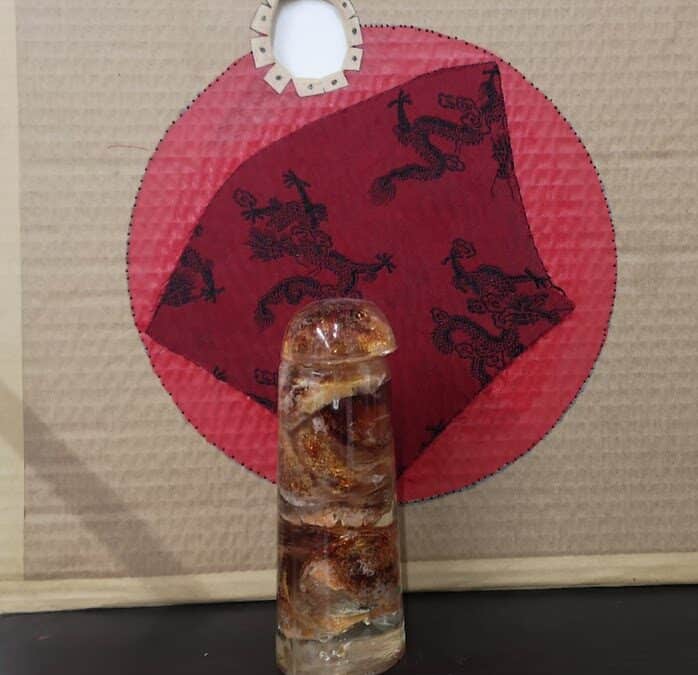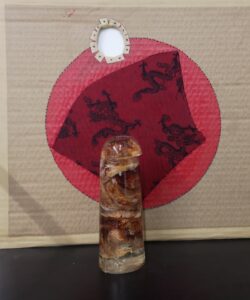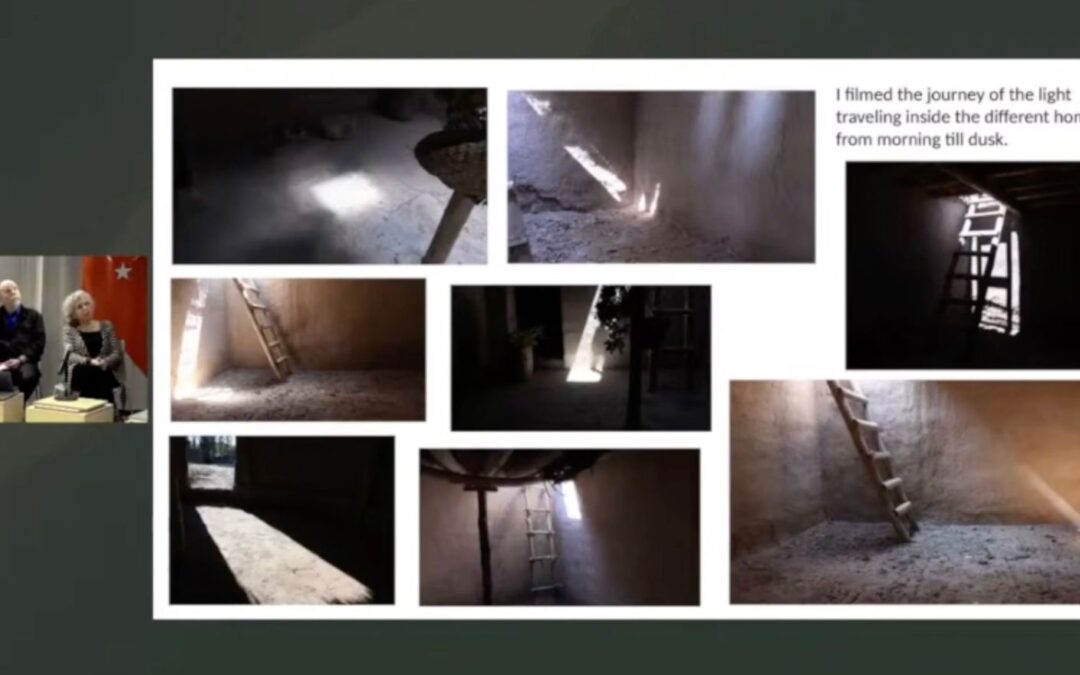
Interiors -THUCYDIDES 2009 2025
Reading from the writings of Thucydides. Thucydides (c. 460 – c. 400 BCE)

Commentary by the writer Rafael Peñas Cruz –
Cambridgeshire July 2025
A video work by Eva Bosch
An intriguing collage of images and words: a male and a female voice repeat the same texts over and over. They are excerpts from Thucydides, whose account of the Peloponnesian wars between Athenians and Spartans have earned him the title of Father of Modern History. He’s celebrated for the veracity or allegedly scientific methods he used to collect information, as different from the more fanciful flights of Herodotus.
The texts are disturbing enough most of the times. When not about war, they tell us about plague and death, a subject for which Thucydides is also celebrated. He brought home to us , the suffering of his times, which was the same as our own suffering now. We are trapped in the same old vicious circle of sorrows and pain. Any thought of progress is questioned by the realisation that certain situations and attitudes always reemerge in the history of humankind.
There is not clear direction from darkness to light.
Watching “Interiors” leaves a pessimistic footprint in our souls, highlighted by the oppressive images of manmade buildings: bunkers, cells, claustrophobic prison-like spaces that echo the stifling interior of machines. They contrast with the soothing impressions left by footage of nature: plants growing, water flowing, movement and change, air and light, a seahorse giving birth to more of its kind.
“We were not the first ones, far from it…” says one of the ancient historian’s phrases that so ominously return in this audiovisual piece, now read by the female voice, now by the male. They exchange places to repeat the same old foolish wisdom on which we have based our notions of fairness.
There is confusion between the words “reasonably” and “unreasonably” in another phrase that comes back to haunt us: “reasonably enough, our consideration for others has brought us more blame than praise”. It is an ambiguous thing to say, in the best of circumstances. Who’s to say how reasonable or unreasonable it is to think so? It certainly sounds like self-justification, an evasive way to elude blame by claiming that any horrors happens in the name of some undetermined progress. Clearly, whatever aim achieved did not justify the means. The horrors are left unjustified.
This is the language of power, as it is indeed the voice’s claim that security, honour and self-interest are suitable bases on which to launch an attack on your neighbours or, for that matter, an atomic bomb on an unsuspecting enemy. It all seems poignant to our current use of AI and the possibility that we will sacrifice ourselves and our freedoms for that of a supposedly more “reasonable” and orderly world brought forward by AI.
“The weak always subjects to the strong”, we hear several times, rather disturbingly. It is a mantra informed by images of skulls, and accompanied by the noise of machinery, intertwined again with the sound of free-flowing water and images of the organic grow of natural life.
“The Athenians were the first to give up weapons”, says Thucydides text, incongruously, as we know that Athens was involved for over twenty years in cruel wars with the Spartans, a cycle of death and destruction that would only lead to the decadence of the Greek city-states.
The repetition of words and concepts mimics the way ideas are instilled into our brains by the powers that be, invisibly through mantras given to us by newscasters and advertisements that invite us to consume this or that, by school texts and by school behaviours both inside the classroom and outside in the school yard. All the machinery of history is compared to the drilling for oil. Drilling is both an image and a metaphor: the drilling of discourse, the drilling of behaviours, the drilling for resources that always the cause for new wars.
One dissonant image recurs that puzzles us, a couple watching the waves, a cliche of love seen in many films, the poster for happiness and well-being. It appears, however, along with Egyptian objects and skulls from the iron age or beyond. Assorted artefacts that bring the idea of sacrifice, a concept that is at the heart of this film and at the heart of the way power is exercised, always asking us to sacrifice ourselves for something, an abstraction such as honour or that elusive security that justifies almost anything today.
In the end, it is nature that will prevail, the humble dandelion pushing through the concrete in some disused car park or the weeds growing out in railways embankment. Water flowing and life growing as different from the death symbolised so powerfully by the famous image of children escaping napalm bombs in the Vietnam war.
It is quite fitting and poignant that Eva Bosch’s film ends up with a quote from Thucydides who said that the peace talks that put an and to the Peloponnesian wars had to be adjourned by an earthquake that devastated the land. Nature always has the last word, whatever our concerns and our conceits.

KAZI IZLERI ISTANBUL EVA DILLWYN ANITA
Pech Merle Cave
La grotte de la Vache_Ariège
Mas Azil Cave
Grotte de Niaux_Retouching?

Iron Oxide_Circle
Experimenting with geometry and iron oxide
Presentation of “La nena del socaire” – La Biblioteca de Babel – Palma de Mallorca – 3.3.25
Presentation of “La nena del socaire” La Barretina Vermella – Malgrat de Mar -21.12.24
Presentation of “La nena del socaire”Biblioteca Antoni Tort de Castellar del Vallès – 19-12-24
Presentació del llibre “La nena del socaire”, el dia 19/12/2024, a les 19:00 hores, va tenir lloc la presentació del llibre La nena del socaire d’Eva Bosch, a càrrec de Noemí Espinàs, a la Biblioteca Antoni Tort de Castellar del Vallès. L’anàlisi magistral de Noemí, a qui agraeixo enormement el treball ben fet, va ser memorable.
